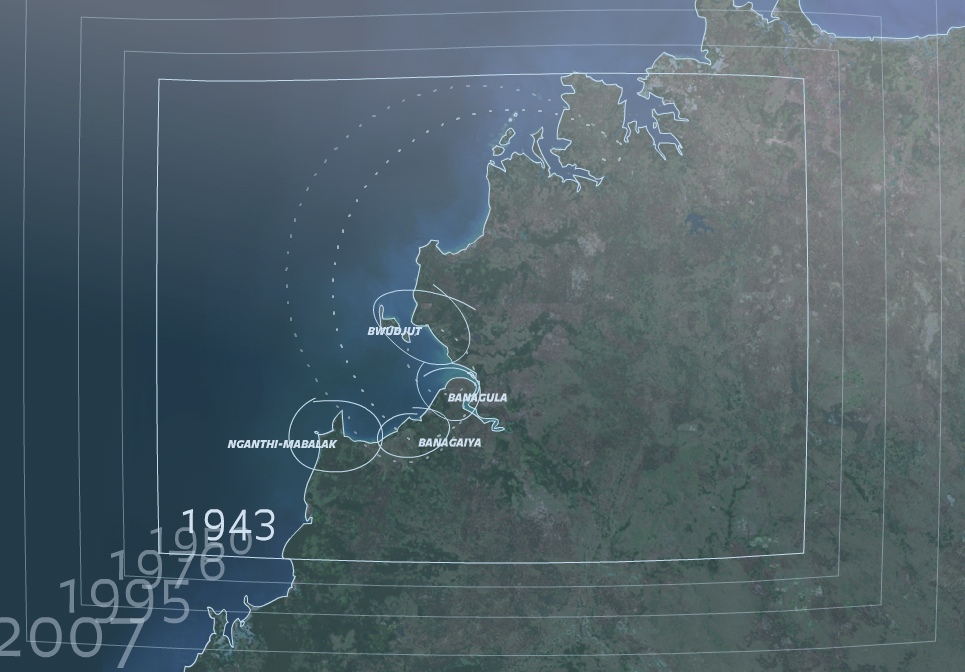We talked about linking the archive content with statistics about aboriginal health, poverty, education to drive the argument that an archive can be a vehicle for social obligation and responsibility
- Peter Cho, Designer's Statement
Alternative views of Digital Futures project data:
 All info and conversations from this project page
All info and conversations from this project page
http://vectors.usc.edu/xml/projects/digital_futures_v1.xml
 RSS feed of the conversations from this project page
RSS feed of the conversations from this project page
http://vectors.usc.edu/rss/project.rss.php?project=90
 List of project data XML feeds that drive Digital Futures
List of project data XML feeds that drive Digital Futures
http://vectors.usc.edu/issues/06_issue/povinelli/xml/index.rdf
http://vectors.usc.edu/xml/projects/digital_futures_v1.xml
http://vectors.usc.edu/rss/project.rss.php?project=90
http://vectors.usc.edu/issues/06_issue/povinelli/xml/index.rdf
Editor's Introduction
What does it mean to say that knowledge wants to be free? Whose knowledge are we talking about? And for whom should it be free? As mass digitization projects continue to unfold along both commercial and public registers, these are not simply rhetorical questions. As scholars working with and through the critical legacies of Foucault and Derrida, we know all too well that the archive is a site of power and a locus of the state. Digitizing the archive and opening it up to broad access does not dispel these positivist functions. Rather, the databases that now underwrite our digital archives might be understood to concentrate the workings of power, repurposing archival documents as searchable and quantifiable data. They may also enact familiar forms of violence, replaying colonialist fantasies of categorical access to the Other. In this project, anthropologist Elizabeth Povinelli explores how our archival obsessions might be reconfigured in support of an "anthropology of the otherwise." She asks that we replace our desire for easy access and total knowing with a situated and embodied sociality that foregrounds obligation and trust. If an archive traditionally organizes its contents in pursuit of a seeming transparency, deploying finding aids and search tools, Povinelli and designer Peter Cho take a different tack in their collaboration. An array of materials (and especially videos) collected during Povinelli's fieldwork in an indigenous community in Australia is here located within a strong narrative and geographic frame. The piece invites the user in through the author's voiceover narration, locating his journey into the project on an abstracted coastal map. The information housed here is not immediately available to the user; rather, it unfolds piece by piece, asking that the user undertake a principled engagement with representations of lived spaces and embodied histories in order to learn more. The viewer of Digital Futures does not travel through chronological time; he moves through the temporalities that the piece and its own logic demand, framed as a stranger. The videos he encounters are not meant to relay the truth of Ruby Yarrowin; their very form works against the dictates of the documentarian impulse and the idea of a singular truth. The videos are palimpsests, richly layered with details that activate multiples senses, destabilizing an easy belief in the indexical nature of images and inviting the user to rewind and reply them. The project is at once an imaginative archive of a specific family and an investigation into the status of the archive in our digital era.
— Tara McPherson, October 7th, 2011


